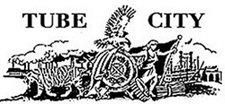The GlobalPost asks, "What if journalists covered the United States like they covered
other countries?"
This is satire. Although the news is real, very little actual
reporting was done for this story and the quotes are imagined. It is
the first installment of an ongoing series that examines the language
journalists use to cover foreign countries. What if we wrote that way
about the United States?
BOSTON, Mass. — Human rights activists say revelations that
the US regime has expanded its domestic surveillance program to
private phone carriers is more evidence of the North American
country’s pivot toward authoritarianism.
The Guardian, a British newspaper, reported
this week that a wing of the country’s feared intelligence
and security apparatus ordered major telecommunications companies to
hand over data on phone calls made by private citizens.
“The US leadership in Washington continues to erode basic
human rights,” said one activist, who asked to remain anonymous,
fearing that speaking out publicly could endanger his organization.
“If the US government is unwilling to change course, it’s
time the international community considered economic
sanctions.”
Over the last decade, the United States has passed a series of
emergency laws that give security forces sweeping powers to combat
“terrorism.” But foreign observers say the authorities
abuse those laws, using them instead to monitor ordinary
Americans.
While the so-called
Patriot
Act passed in 2001 is perhaps the most dramatic legislation to
date curbing freedoms here, numerous lesser-known laws have expanded
monitoring
of news outlets, email, social media platforms and even opposition
groups — like the
Occupy and
Tea
Party movements — that are critical of the regime.
US leader Barack Obama, a former liberal community organizer and
the country's first black president who attracted a wave of
support from young voters, rose to power in 2008 promising reform. He
was greeted in the United States — a country of about 300
million people — with
optimism.
But he has since disappointed those supporters, ruling with a
sometimes iron fist and continuing, if not expanding, the policies of
the country’s former ruler, George W. Bush.
On a recent visit to the United States by GlobalPost, signs of the
increased security apparatus could be found everywhere.
At all national airports, passengers are now forced to undergo
full-body scans before boarding any flights. Small cameras are perched
on many street corners, recording the movements and actions of the
public. And incessant warnings on public transportation systems
encourage citizens to report any “suspicious activity” to
authorities.
Several American villagers interviewed for this story said the
ubiquitous
government marketing campaign called, “If you see something,
say something,” does little to make them feel safer and, in
fact, only contributes to a growing mistrust among the general
population.
“I’ve deleted my Facebook account, stopped using email,
r visiting websites that might be considered anti-regime,” a
resident of the northern city of Boston, a tough-as-nails town
synonymous with rebellion, told GlobalPost. It was in Boston that an
American militia first rose up against the British empire. “But
my phone? How can I stop using my phone? This has gone too
far.”
American dissidents interviewed by GlobalPost inside the United
States say surveillance by domestic intelligence agencies is just one
part of a seemingly larger effort by the Obama administration to
centralize power.
The American leader, for example, has in recent years personally
approved the jailing —
and
in some cases execution — of American citizens suspected of
involvement in what the regime calls “terrorist
activity.”
“What exactly is terrorism? The term is used so loosely these
days it could include just about anyone,” said one anti-
government protester, who was tear-gassed and then arrested in 2011
for participating in a peaceful demonstration in New York,
America’s largest city and its economic capital.
Obama has also overseen a
crackdown
on whistleblowers, most famously
jailing
Bradley Manning, a US soldier, for leaking documents that called
into question US military actions in Iraq and Afghanistan.
The government quietly imprisoned Manning for three years before
finally trying him in a military court this week. He spent the first
nine months of that in solitary confinement, where prison officials
forced
him to sleep naked without pillowsor sheets and prevented him from
reading newspapers, watching television or even exercising.
Activists also criticize the US regime for imprisoning without
trial foreigners it deems threatening to national security in an
offshore prison camp called Guantanamo Bay. This week an investigation
revealed that the
US
regime force-fed Guantanamo inmates participating in a hunger
strike. Force-feeding is
illegal
under international law.
Meanwhile, whispering in the streets about what the regime might do
next has reached a dull roar. But after a national uprising in 2011 by
the leftist Occupy movement ended in
evictions,
arrests and tear gas, Americans appear hesitant to take their
anger into the streets.
Most major media outlets, which in the United States are largely
controlled
by politically-connected corporations — many of them, in
fact,
finanncially
supported Obama’s election — have been relatively
quiet on such issues.
Foreign observers, however, say the recent news about domestic
surveillance is spreading wildly in other ways — on Twitter and
around the dinner table. They say the news has the potential to spark
an uprising — at least among urban, educated elites in the
country’s major cities — mirroring those happening now in
Turkey and that earlier swept parts of the Arab world.
One foreign businessman who works closely with the US government on
issues of security said he thought Obama was too well-established and
had too strong a security force for any challenge to its authority to
take hold.
“This isn’t Tunisia,” he said. “This is
more like China, where a massive security presence could easily put
down any organized opposition movement.”
The businessman added that Obama was democratically elected twice,
which he believes gives the leader enough credibility to weather any
serious opposition to his rule.
In a small, unassuming house near Boston’s bustling seaport,
though, supporters of the opposition disagreed, saying the leader had
lost “all credibility.” The group said the opposition
continued to organize and grow, and that it was just a matter of time
before the rest of the American population joined them.
Indeed, different political factions are beginning to unite over
the issue of domestic surveillance, despite their strong
differences.
“We meet in person these days to talk about strategy, phones
and email are no longer safe for us,” one of them said.
“Our goal now is to just get out the message to the world about
what is going on here. That’s the first step. We need to educate
not only Americans but the world about the extent the US regime is
controlling the lives of its citizens.”
(Original article on the GlobalPost.)
Categories:
News Media,
Politics
Home
KGB Stuff
Commentwear
E-Mail KGB
Donate via PayPal
Older entries, Archives and Categories
Top of page

















